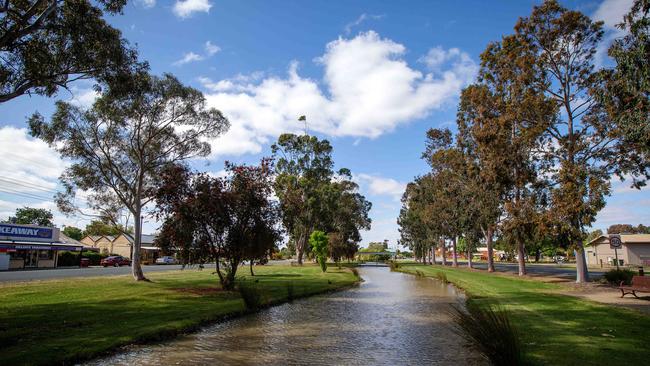Disease warning for Echuca, Mildura and Albury-Wodonga as authorities detect Japanese encephalitis
Three people are in hospital following the outbreak of a potentially-fatal Japanese encephalitis virus near Echuca.
Goulburn Valley
Don't miss out on the headlines from Goulburn Valley. Followed categories will be added to My News.
Three Victorians are reportedly in hospital suspected of contracting the potentially fatal cases Japanese encephalitis virus, following the shock detection of the disease at piggeries near the Murray River.
The virus is transmitted by mosquitoes between pigs, humans, birds and horses, and appears to have found a foothold in northern Victoria, and parts of regional NSW and Queensland this year.
Most people infected with the virus show no significant symptoms, but of the small number suffer a fever, disorientation, a headache or vomiting.
About 1 per cent of those infected develop encephalitis — swelling of the brain — and about a third of those die.

The three Victorian hospitalisations follow the mysterious presentation of a string patients at hospitals in regional NSW and Queensland pig farming towns with symptoms of an unknown mosquito-borne virus.
Hospitals in Australia do not typically test for Japanese encephalitis virus, although other types of encephalitis are occasionally detected some parts of the country.
Scientists suspect the disease arrived at piggeries in the eastern states after being carried by thriving flocks of migratory birds and mosquitoes from Southeast Asia, across outback floodwaters in recent months.
As recently as last week, the virus had only been detected in pigs, not humans or mosquitoes, at a piggery which health officials described as “near Echuca”.

The piggery is at Lockington, 30km southwest of Echuca towards Bendigo.
“Anyone is potentially at risk of being bitten by mosquitoes and while most bites will only cause minor swelling and irritation, an infected mosquito can transmit potentially serious diseases,” the warning said.
“This risk may be increased particularly near the Murray River and its surrounds, from Mildura to Wodonga, where increased mosquito numbers have been detected recently.
“People with increased exposure to mosquitoes may be at a higher risk of infection, particularly people camping, or working or spending time outdoors in these regions.”
Victoria’s Chief Veterinary Officer, Graeme Cook, said pig and horse owners should use mosquito repellents and remove mosquito habitats, such as pools of stagnant water.
There is no risk to humans from eating pork.
Victorian hospitals are thought to have only ever treated one case of the disease before, when Pakenham man Mark Schroeder was bitten while holidaying in Bali in 2015.





